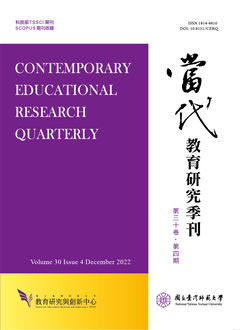

大學法人化的爭議已存在許久。2005年5月行政院移送立法院審議的「大學法新修正條文草案」中訂定了大學法人化的法律依據,雖未通過,但大學法人化的爭議並沒有結束。當時教育部長更以「大學法人化為世界局勢」,展望我國未來組織改制的推動。目前政策上乃以行政法人作為大學法人化的目標,在比較法上主要是以日本的獨立行政法人為參考。然而大學法人化事實上可能包含數種各具不同性質的組織態樣,對於大學的組織、人事、財務和學術自治,均可能有不同的影響。本文焦點在於釐清法人化後可能的各種組織型態,類型化為公法社團法人、公法財團法人與行政法人三種模式,並佐以比較法的例子說明其組織的特性。在進一步確立憲法上大學自治的保障作為大學法人化的目標之後,分別就不同的組織類型討論它們對大學自治的影響和可能涉及的問題。本文目的在於從組織功能角度,重新整理大學法人化的爭議內容,提供一個明確的思考方向與論理脈絡,希望助於未來大學法人化爭議的解決。
The issues of legal personalization of universities have long been disputed. The newly revised draft amendments to the University Act, which are brought up by the Executive Yuan on May, 2005 to the Legislative Yuan for consideration of enactment, stipulate the legal basis for the legal personalization of universities. Although the draft amendments have not yet come into law, the disputes do not cease. The Minister of the Ministry of Education claimed that "legal personalization of universities is the trend of the world," when he sketched the prospectus of governmental organization reforms. At present, while referring to the Japanese experience of independent administrative legal person from a comparative law approach, the governmental policy still prefers the form of administrative legal person as the goal of legal personalization of universities. However the form of legal personalization of universities shall not be limited to the form of administrative legal person alone and may be varied. There are several different types of organizations to be chosen from and may render different impacts on the organizations, personnel affairs, finance, and autonomy of universities.This Article focuses on the clarification of all three possible forms of organizations after the legal personalization of universities. The three possible forms are public law juridical association, public law juridical foundation and administrative legal person. Different characteristics of each of these three forms will be analyzed from comparative law perspectives and case studies will also be discussed to better illustrate the analysis. After further ascertaining the constitutional guarantee of university autonomy as the goal of the legal personalization of universities, this Article will go on to discuss the possible influences and relevant issues of adopting different forms of organizations respectively. The purpose of this Article is to provide a certain and clear thought and theoretical basis of the issues of legal personalization of universities after reorganizing and categorizing them from the angle of organizational functions and hope to be useful to resolve the issues of legal personalization of universities in the future.

本著作係採用創用 CC 姓名標示-非商業性 3.0 台灣 授權條款授權.
本刊國立台灣師範大學教育研究與創新中心
106台北市和平東路一段162號 | 電話: 02-7749-3670 | E-mail: cerecerq@gmail.com
教創中心 | 師大 | 電子報 | 線上投審系統
本刊由國家科學及技術委員會人文社會科學研究中心補助經費
© 2014 CERI-NTNU
